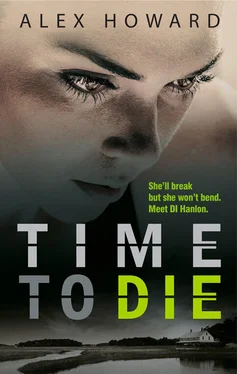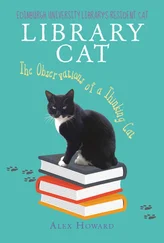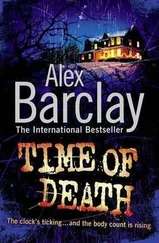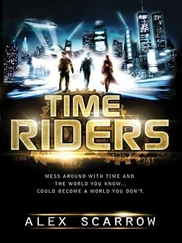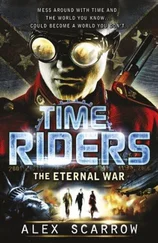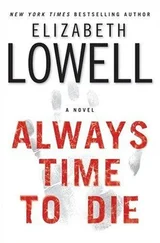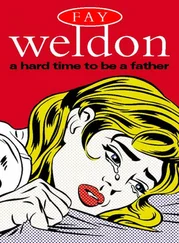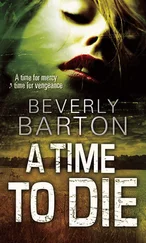Alex Howard - Time to Die
Здесь есть возможность читать онлайн «Alex Howard - Time to Die» весь текст электронной книги совершенно бесплатно (целиком полную версию без сокращений). В некоторых случаях можно слушать аудио, скачать через торрент в формате fb2 и присутствует краткое содержание. Жанр: Триллер, на английском языке. Описание произведения, (предисловие) а так же отзывы посетителей доступны на портале библиотеки ЛибКат.
- Название:Time to Die
- Автор:
- Жанр:
- Год:неизвестен
- ISBN:нет данных
- Рейтинг книги:3 / 5. Голосов: 1
-
Избранное:Добавить в избранное
- Отзывы:
-
Ваша оценка:
- 60
- 1
- 2
- 3
- 4
- 5
Time to Die: краткое содержание, описание и аннотация
Предлагаем к чтению аннотацию, описание, краткое содержание или предисловие (зависит от того, что написал сам автор книги «Time to Die»). Если вы не нашли необходимую информацию о книге — напишите в комментариях, мы постараемся отыскать её.
Time to Die — читать онлайн бесплатно полную книгу (весь текст) целиком
Ниже представлен текст книги, разбитый по страницам. Система сохранения места последней прочитанной страницы, позволяет с удобством читать онлайн бесплатно книгу «Time to Die», без необходимости каждый раз заново искать на чём Вы остановились. Поставьте закладку, и сможете в любой момент перейти на страницу, на которой закончили чтение.
Интервал:
Закладка:
Bingham’s heart raced uncontrollably and he thought for a second he was going to faint. To be a nonce and alone with another prisoner could realistically only mean one thing. The attack wasn’t planned for the library; it was planned for here and Jardine had delivered him to it. He felt the wet warmth in his jeans as he stared at the other man and lost control of his bladder in his terror. The other prisoner noticed the telltale change of colour in the material from light to dark blue. He shook his head but didn’t seem surprised.
‘Oh dear me,’ he said softly and advanced swiftly on Rabbit, who was too frightened to move or speak. Bingham’s nightmare had begun.
Clarissa and Conquest stood on the quayside and watched as the small lorry carefully reversed off the boat that had come from the lodge on the mainland to Strood Island. The island was comma-shaped, nearly a mile long, and lay about a quarter of a mile off the Essex coast in the North Sea near Walton-on-the-Naze, the nearest town.
The island had a large nineteenth-century Gothic-style manor house on it that had been built by a Victorian businessman who had taken up the then relatively new hobby of sailing for pleasure. There was a small natural harbour on the coastal side of the island, protected from the sea by a low hill that rose up behind the house, and the harbour had been enhanced by a mole that ran out from the shore, leaving a gap suitable for a sizeable boat.
Conquest had bought the island about twenty years ago. It had been dirt cheap. No one wanted it. The house was dilapidated, falling down in parts. It had no electricity or gas, the quay in front of the house on the island was in poor condition and the lodge that went with it on the mainland was in an equally rundown state.
At the time Conquest was still selling drugs. Ecstasy was the new kid on the block and new strains of grass like skunk were beginning to supplant black as the thing to smoke. The Dutch had control over the E so Conquest was spending a good deal of time going backwards and forwards to the continent. Twice now he’d been stopped, searched and questioned by French border control, alerted by his unusual travel history. With a motorboat, he could just sail over and bypass officialdom. Brittania rules the waves, thought Conquest. He had been using lorry containers from Rotterdam to Harwich to move the ecstasy. He felt he was having to pay too much to bribe HMRC officials and wanted to cut them out.
The idea of sailing the drugs over had never come to anything. But later, when he started going big with Bingham, the house on the island proved ideal.
The land surrounding the house had been landscaped to a certain extent and was mostly enclosed by a two metre-high wall built to protect the plants in the garden from the cold winds of the North Sea. There was a gap, however, that led to a field, originally put there for agricultural purposes to provide grazing for dairy cows. It was here that Conquest had decided to put the pigs. The fences surrounding the field had been strengthened and a dozen shelters for the pigs installed, with a wallow created for their comfort, and today the animals themselves arrived. There were six of them, five females and a tusked boar, all sizeable and pink. Conquest knew from Glasgow Brian, who was guiding them off the truck with a board and shouts of encouragement, that they were Large Whites, and they would eventually weigh in at a couple of hundred kilos each.
When she was a young girl, Clarissa used to have an illustrated copy of the fairy story ‘The Three Billy Goats Gruff’, and the Troll who lived under the bridge was the very image of Brian. Like the Troll he was enormous, obese, very strong and covered in black hair. His teeth were yellowed and irregularly shaped, with occasional gaps where they’d been knocked or kicked out in fights.
A few years ago, he’d had a body to dispose of. A turf war had got out of hand and a rival biker had died in a fight at a meeting held to establish peace talks. Maybe unsurprisingly, the meeting had turned violent. The peace negotiators had agreed to come unarmed. All had brought knives or guns. Pete had a cottage with land attached and he farmed on a low-key scale. He’d volunteered to get rid of the dead Hell’s Angel. He had experimented by quartering the dead biker and feeding him to the pigs that he kept on his smallholding. It was very successful. Pigs are omnivorous with big appetites and their forty-four teeth are capable of chewing through most organic things. The only drawback really was that small bones, like those of fingers or toes, passed through the pigs’ digestive system fairly intact. They would be readily identifiable as human to the trained eye. They were too small and it was too time-consuming to search for them in the mud churned up by the animals or to go through their excrement.
It wasn’t a foolproof system but it functioned well enough. It would be possible to work out what had happened, but you’d need to know what you were looking for. It would have to be a pretty painstaking search by the police to find anything incriminating. They’d have to sift through a couple of acres of mud. It wasn’t something you might stumble across. It was certainly better than burial or cremation.
With these pigs on the island, Conquest would now have a ready-made waste-disposal system and, as he joked with Pete, it was very eco-friendly.
Clarissa watched the pigs as they nervously explored their new, unfamiliar surroundings. They snuffled the strange salt air with their snouts. Pigs have a keen sense of smell. They hadn’t enjoyed the lorry journey and they were still unsettled. They were not in the best of moods. To Clarissa’s eyes they looked monstrous. She wasn’t a country girl and it was the first time she had ever seen a pig. They were the size of Chesterfield sofas and their eyes were disconcertingly intelligent. They gleamed. I’m not going in there, she thought, staring at their paddock from behind the barred gate where she stood watching them. Not if you paid me. They creep me out.
She turned and looked at the house behind her. The two downstairs front rooms of the house overlooked the island’s jetty and, beyond that, the flat, green line of the Essex coast. One of the rooms was a lounge; the other, which had been a former snooker room, Conquest used as his office. In the course of his life, he had never bothered to collect art or mementos but occasionally he’d ended up with things salvaged from properties. He’d used these to decorate these rooms. It gave them a homely feel. The London address in the Bishops Avenue was kept on purely as an investment and for impressing clients; he didn’t like living in it. It was the island that felt like home.
Amongst these random objects — a mounted tiger’s head, stuffed fish, a framed poster for some music hall acts — was a pair of hunting spears, as tall as a man, with long, barbed iron heads, said to have been used by Hermann Goering at his enormous countryside retreat of Carinhall. Robbo, who worked for Conquest and lived in the house’s basement, venerated these. He coveted them. Robbo worshipped the Nazis. The money that Conquest paid him, and he paid him very well, went chiefly on Nazi memorabilia. The spears would have crowned his collection. Frequently he pestered Conquest to let him have them. ‘Over my dead body,’ Conquest said. They were vicious things, designed for boar hunting. Clarissa hadn’t thought anything of them until she’d seen the size of an actual pig. One of the pigs in the field was indeed a boar, with protruding tusks that Glasgow Brian had explained were simply overgrown front teeth. Clarissa wouldn’t dream of approaching it, certainly not armed with only a primitive spear, no matter how sharp or effective it might be.
Conquest had made a joke about someone called Rabbit and his dental similarities. How old’s the boar? he’d asked Glasgow Brian. About five, said Glasgow Brian. Conquest had laughed and said, ‘That’s the age Rabbit likes them. Maybe a bit too old for him in fact. He’ll be here in a few weeks, I’ll introduce them. They’ll get on.’
Читать дальшеИнтервал:
Закладка:
Похожие книги на «Time to Die»
Представляем Вашему вниманию похожие книги на «Time to Die» списком для выбора. Мы отобрали схожую по названию и смыслу литературу в надежде предоставить читателям больше вариантов отыскать новые, интересные, ещё непрочитанные произведения.
Обсуждение, отзывы о книге «Time to Die» и просто собственные мнения читателей. Оставьте ваши комментарии, напишите, что Вы думаете о произведении, его смысле или главных героях. Укажите что конкретно понравилось, а что нет, и почему Вы так считаете.
